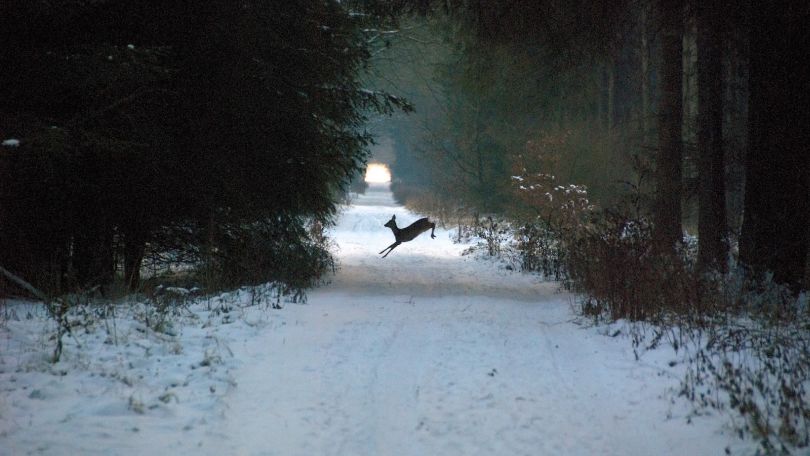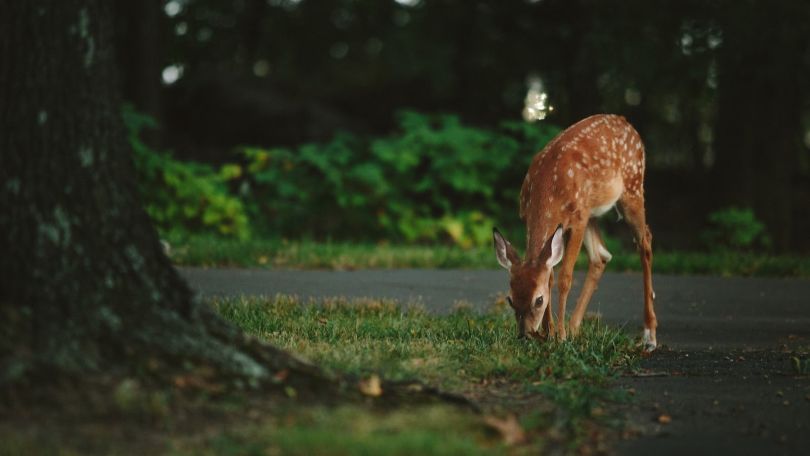Dealing With the Aftermath of Deer Collisions
It is a driver’s worst nightmare: deer crossing the road and making contact with your vehicle. Even if you’re lucky to walk away from the experience without injury, it can be incredibly traumatic. There is an even higher risk of property damage; estimates suggest that there could be upwards of one million deer-involved automobile accidents annually, resulting in billions of dollars worth of repairs. In this blog post, we have gathered some tips on how to best handle the aftermath of such casualties so that you stay safe and get back behind the wheel as soon as possible.

The type of damage that was done to your vehicle from a deer collision
Driving at night can be dangerous, especially when you come across a deer unexpectedly. As much as you try to avoid hitting the animal, sometimes it’s just impossible to avoid a collision. After the crash, it’s important to assess the type of damage done to your vehicle. Depending on the severity of the impact, your car could have sustained damage to the body or the mechanical components. The body of your car could have scratches, dents, or even holes. The mechanical components are equally susceptible to damage, with the radiator, suspension, and brakes being the most common parts affected. It’s important to take the necessary steps to fix any damage done as soon as possible. A deer car accident lawyer can help you get compensation from your insurance company to cover the costs of repairs. It’s essential to address the damage immediately, as leaving it for too long could result in further complications down the road.
The emotional impact of deer collisions
Colliding with a deer can be a traumatic experience. It can leave you feeling shaken up and anxious about driving in the future. This is completely normal and it’s important to take care of your mental health after such an event. If you’re experiencing any distress or anxiety, seek support from friends, family, or a therapist. You could also join a support group for others who have experienced similar accidents. It may help to talk about your experience and share coping strategies with others who understand what you are going through. If you feel too overwhelmed, don’t hesitate to seek professional help.
Taking preventative measures
While deer collisions are not completely avoidable, there are some precautions you can take to reduce the risk. First and foremost, always be aware of your surroundings while driving. Keep an eye out for any signs indicating high deer populations in the area and adjust your speed accordingly. It’s also important to use your high beams while driving at night as they can help spot deer from a distance. Lastly, refrain from swerving if you encounter a deer on the road; it’s safer to brake firmly and stay in your lane.
Assess the safety risks associated with the damage
When faced with vehicle damage from a deer collision, it’s important to consider the safety risks associated with driving your car. If the damage is minor and does not impact the functionality of your vehicle, you may be able to continue driving as usual. However, if there is significant damage that could pose a safety risk, it’s best to refrain from driving until the necessary repairs have been made. This may require renting a car in the meantime or relying on public transportation. In addition, make sure to regularly check and maintain your car’s safety features such as airbags and seatbelts.
Learn about state laws regarding insurance coverage
Driving down the road and suddenly, a deer darts out in front of your car. It’s a terrifying experience, but unfortunately, it’s not uncommon. In fact, according to a recent study, there are about 1.5 million deer-vehicle collisions each year in the United States. If you’re one of the unlucky ones who’s been involved in a deer collision, you might be wondering if your insurance will cover the damages. The answer, as with many things insurance-related, is “it depends” on your state’s laws. Some states have specific provisions for coverage, while others don’t.
Find a reputable repair shop to fix your car
Getting into a collision with a deer can cause significant damage to your vehicle. That’s why it’s crucial to find a reputable repair shop that will fix the damages and get you back on the road safely. Do some research and read reviews before choosing a repair shop, and make sure they have experience dealing with deer-related accidents. Also, be sure to obtain multiple estimates from different shops to ensure you’re getting the best deal. Most importantly, choose a repair shop that communicates effectively and keeps you updated throughout the repair process. They should also provide a warranty for their work. When you pick up your vehicle, inspect the repairs carefully, and don’t hesitate to ask questions. Furthermore, don’t be afraid to follow up if you notice any issues after driving your car for a few days.
Research wildlife management techniques
As humans continue to encroach upon natural habitats, wildlife collisions have become an unfortunate reality on our roads. Fortunately, there are wildlife management techniques that can be employed to reduce the occurrence of collisions. Fencing, for example, can be effective in keeping animals away from roads and highways. Another potential technique is controlled hunting, which can help to manage the populations of larger animals that are more prone to collisions. Additionally, repellents can be used to keep animals from venturing too close to roadways. By utilizing these and other proven techniques, we can work towards preserving both the safety of drivers and the well-being of our native wildlife.

As a vehicle owner, it is important to be aware of the steps you must take in case of a deer collision. Identifying the type of damage, assessing any safety risks associated with it, learning about applicable insurance coverage, filing an insurance claim if needed, and finding a reputable repair shop are all necessary actions. Additionally, by researching wildlife management techniques such as controlled hunting or fencing, you can significantly reduce the chances of a future deer collision. Knowing what to do ahead of time will help you protect yourself and your car from any unnecessary distress and financial burdens due to a potential accident with an animal. Taking control of this situation now will ensure not only that precautionary measures are taken but also that good decisions are made in order to protect those on both sides of the road.
